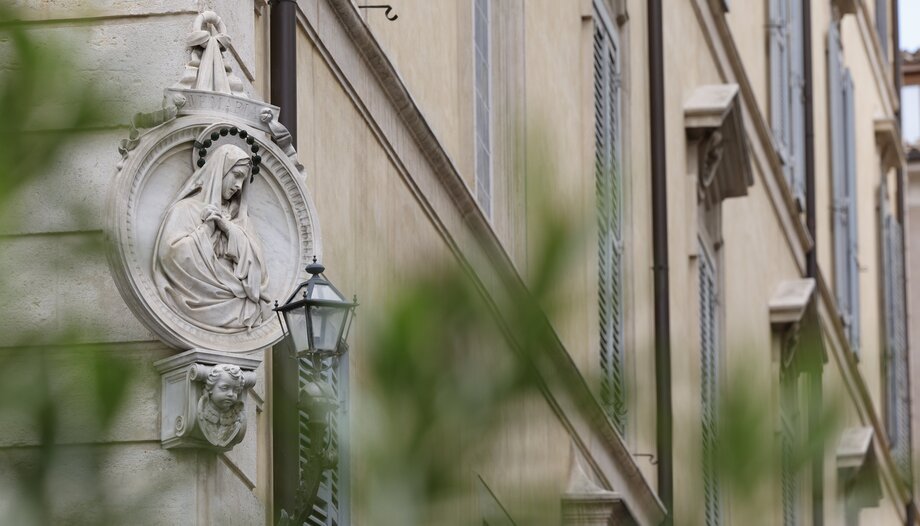On the morning of October 23rd, the second season of the video series "Learning Rome"the project promoted by the Pontifical University of the Holy Cross and realized together with his students, which is intended to be an opportunity to deepen the richness of the city of Rome in the context of the development of Christianity, up to the present day.
Three seasons are planned for now; the videos are released monthly, from October to June, and each season consists of nine episodes in which students from various faculties of Holy Cross, lay people, religious, men and women, from different countries, play the role of "ciceroni" (guides) among the symbolic places of Christianity in the city.
The second season (October 2024 - June 2025)
Specifically, the season that has just opened addresses the long historical period known as Late Antiquity, the High Middle Ages and the Late Middle Ages.
This is why the first episode is dedicated to "The Fathers of the Church", that group of Christian thinkers and writers who flourished after the peace of the Church and the construction of the first Christian basilicas, promoted by Constantine. In particular, it recalls the presence of three great saints who left their mark in Rome: St. Augustine of Hippo, St. Jerome and St. Leo the Great.
The city of Rome also preserves the first basilica in the world dedicated to the Mother of God ("theotokos") and the most ancient Marian representations: this is discussed in the second episode, entitled "Devotion to the Mother of God in Rome", with particular attention to some of the most venerated Marian icons.
The third episode is dedicated to St. Gregory the Great and the evangelization of Europe, highlighting the role of the great pontiff in the spread of the Gospel in England and other peoples. In addition, the story of Saints Cyril and Methodius, who arrived a few centuries later and evangelized the Slavic peoples, is explored.
And again we will speak of the father of Western monasticism and Patron Saint of Europe, St. Benedict, who found his vocation precisely in Rome, and continuing in the High Middle Ages we will reach Charlemagne, whose presence in the Eternal City was fundamental for the construction of Western Christian civilization.
The fifth episode is dedicated to one of the most important moments of the Church that left its mark in Rome: the Reformation of the 11th and 12th centuries, also known as the Gregorian Reformation. Later, we delve into the history of St. Francis of Assisi and St. Dominic of Guzman, discovering the places in the city that recall the presence of these two great saints and founders.
With a reference also to the present day, the seventh episode is dedicated to the First Jubilee, while the following one considers particularly dramatic moments for the Church and for Rome: the Avignon Exile, in which the Popes ceased to reside in Rome, and the Western Schism (14th and 15th centuries). In this historical period, two exceptional women sustained the Church with their faith and strength: St. Bridget and St. Catherine of Siena. Both lived and died in Rome and many memories of them are preserved. The episode is entitled: Story of two strong women.
Finally, the last episode deals with "The Church before humanism and the Renaissance", where we will discover the lights and shadows of this period of history, focusing on some of the greatest artists who achieved a wonderful synthesis between art and faith.
The first season
The episodes of the first season, dedicated to Antiquity, were published from October 2023 to June 2024, usually on the third Thursday of each month. The titles of this first series presented the places of St. Paul's passage to Rome and his martyrdom and burial, as well as that of St. Peter, the life of the early Christians, the testimony of the martyrs and the story of Emperor Constantine with the construction of the Basilicas of St. John Lateran and the Holy Cross in Jerusalem.
The project
The videos are collected in two dedicated playlists on the University's YouTube channel: (first season) y (second season).
The "Learning Rome" project is funded through a fundraising campaign initiated by the Office of Promotion and Development of the Pontifical University of the Holy Cross. The contents are curated by University of the Holy Cross Department of Church History professors Luis Cano and Javier Domingo.









